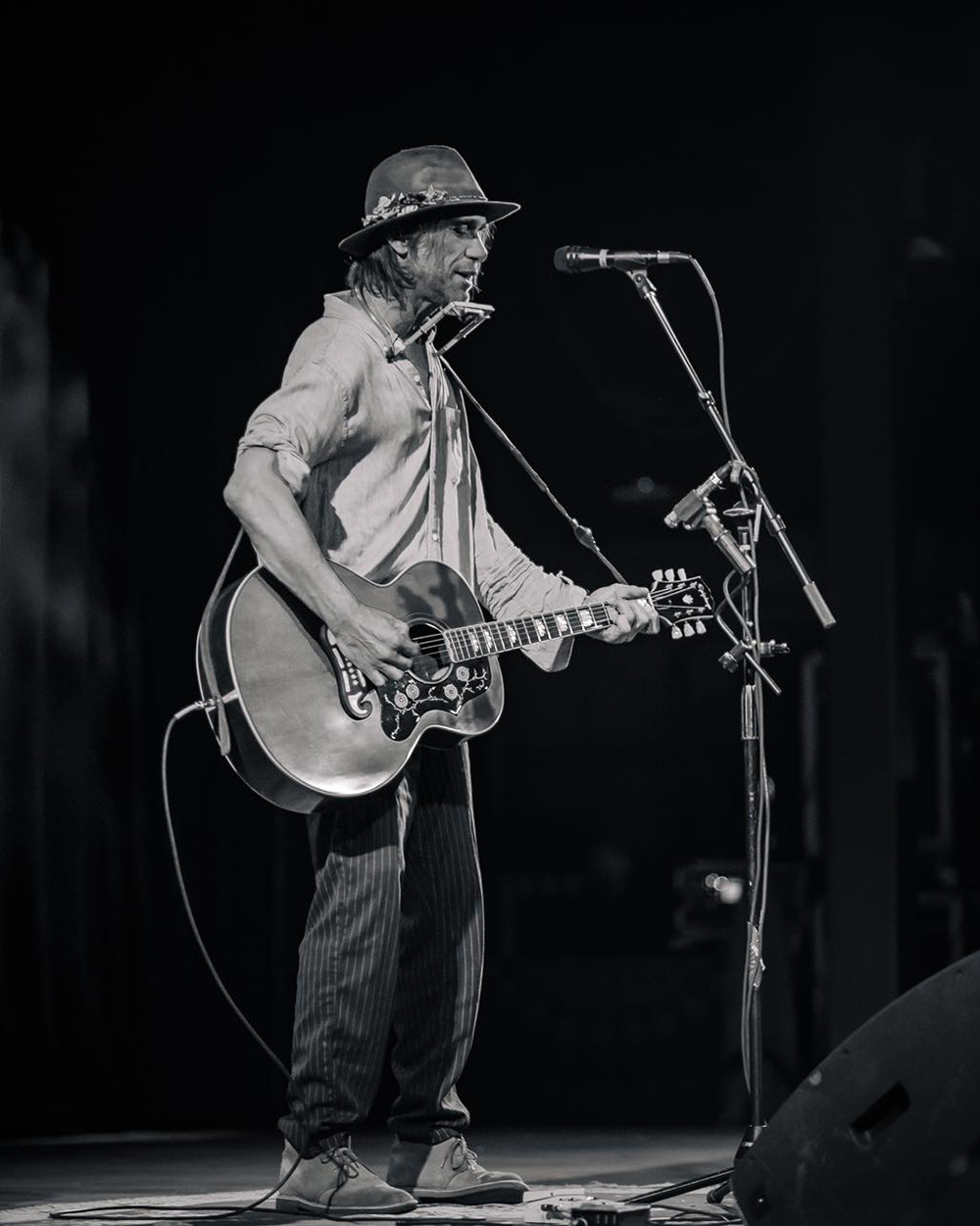Memphis has plenty of music venues, from dives to sports arenas. But for the past couple of years, perhaps no venue has been as underused as the Gibson Lounge.
Since “Hurricane Elvis” whipped through the Gibson Guitar Factory in 2003, concerts at the site have been rare. Instead, it’s been relegated to a rental facility, more likely to host wedding receptions. But that might be about to change.
Nashid Madyun, executive director of the new Discoveries of Gibson program, Jack Patterson, the Nashville-based general manager of the Gibson Showcase, and Memphis-based consultants Resource Entertainment Group are all working together to reinvent Gibson — both the Lounge and the factory’s rooftop space — as a viable venue. The attempt starts this week when Nashville-based folk singer Todd Snider joins locals Amy & the Tramps for a concert at the Lounge.
Both Patterson and Madyun are relatively new to the Gibson. Patterson has been with the company for roughly a year, and Madyun moved from the Stax Museum of American Soul Music last September to direct the Gibson’s new educational arm, which is bringing an exhibit from Cleveland’s Rock and Roll Hall of Fame.
Though both men cite “Hurricane Elvis” as a likely factor in the Gibson’s recent dormancy, neither seems totally sure why concert bookings dried up. Both are dedicated to changing that.
“Everyone involved in the project now thinks it’s pretty obvious that it’s time to pick it up,” Madyun says of booking the site, referring to the coming Rock and Roll Hall of Fame installation and the new Westin Hotel being built adjacent to Gibson as opportunities to enhance Gibson’s concert profile.
Though the Gibson will remain available as a rental facility, Patterson says concerts will no longer take a backseat to the banquet business. By the end of 2007, he hopes to have an event booked once a week — either in the Lounge or on the rooftop, which has hosted successful concerts by Wilco and Etta James.
“It’s just a matter of getting ourselves back out there,” Patterson says. “Letting promoters and management companies know that this is once again a place that you can play. We’re moving on it, but it’s a slow process.”
Paul Chandler, a partner in Resource Entertainment Group, has high hopes too.
“When FedExForum came, south of Beale came alive. And with the Westin Hotel coming in, it’s going to expand that entertainment district,” Chandler says. “I think [the Gibson Showcase] can be anything,” Chandler says. “Any genre can play in that room. The design is good. The furniture is nice. But you can also move all that stuff out and having a standing-room show. It’s a sophisticated performance venue. We’ve just got to generate activity there, and that’s why this is an important show. I’m more confident with Todd and Amy doing this event than a more expensive, larger-production touring show.”
If the Snider show is something of a test-run for the new Gibson, for fans it should just be a great show. A Keith Sykes protégé who got his break in Memphis more than a decade ago, Snider might be hitting his stride. His most recent album, 2004’s East Nashville Skyline, is a career-best — the saddest, funniest, most deeply humane “protest” record of what was a deeply contentious year. Snider’s follow-up — The Devil You Know — is set for an August release.
The last album’s most attention-grabbing song is a campfire sing-along satire, “Conservative, Christian, Right Wing, Republican, Straight, White, American Males,” but the greatness of that song is that while Snider seems to mean everything he says, he’s also making fun of the labels people throw at those who disagree with them.
Snider is too modest and too nice to lecture anybody about anything, but he seems to understand in his bones just how extreme American life has gotten over the past few years, and he is certain of at least one thing: The bad shit always rains down hardest on the poor.
The album’s real highlight might be “Incarcerated,” a comical rant written from the perspective of someone caught in the reality-TV crosshairs.
“I was watching Judge Judy,” Snider says by phone from his home in East Nashville, the downscale, arty neighborhood he celebrates on the record. “And I had been looking for a way to [use the line] ‘Nobody suffers like poor people suffer.’ I didn’t want to have a song called that. I just wanted to say that somewhere. So I was watching Judge Judy — love her — and I started taking the shit people say to her all day long and combined it all into this one rant.”
The combination of the absurdly comic and subtly insightful is common to Snider’s music, and his sense of humor comes through as clearly between songs.
Snider’s show is supposed to be a solo set but could evolve into more than that.
“I may play with Amy and her friends, if I get into town in time to soundcheck,” Snider says. “Or if I get into town in time to drink half a bottle of wine, I might wing it.”



